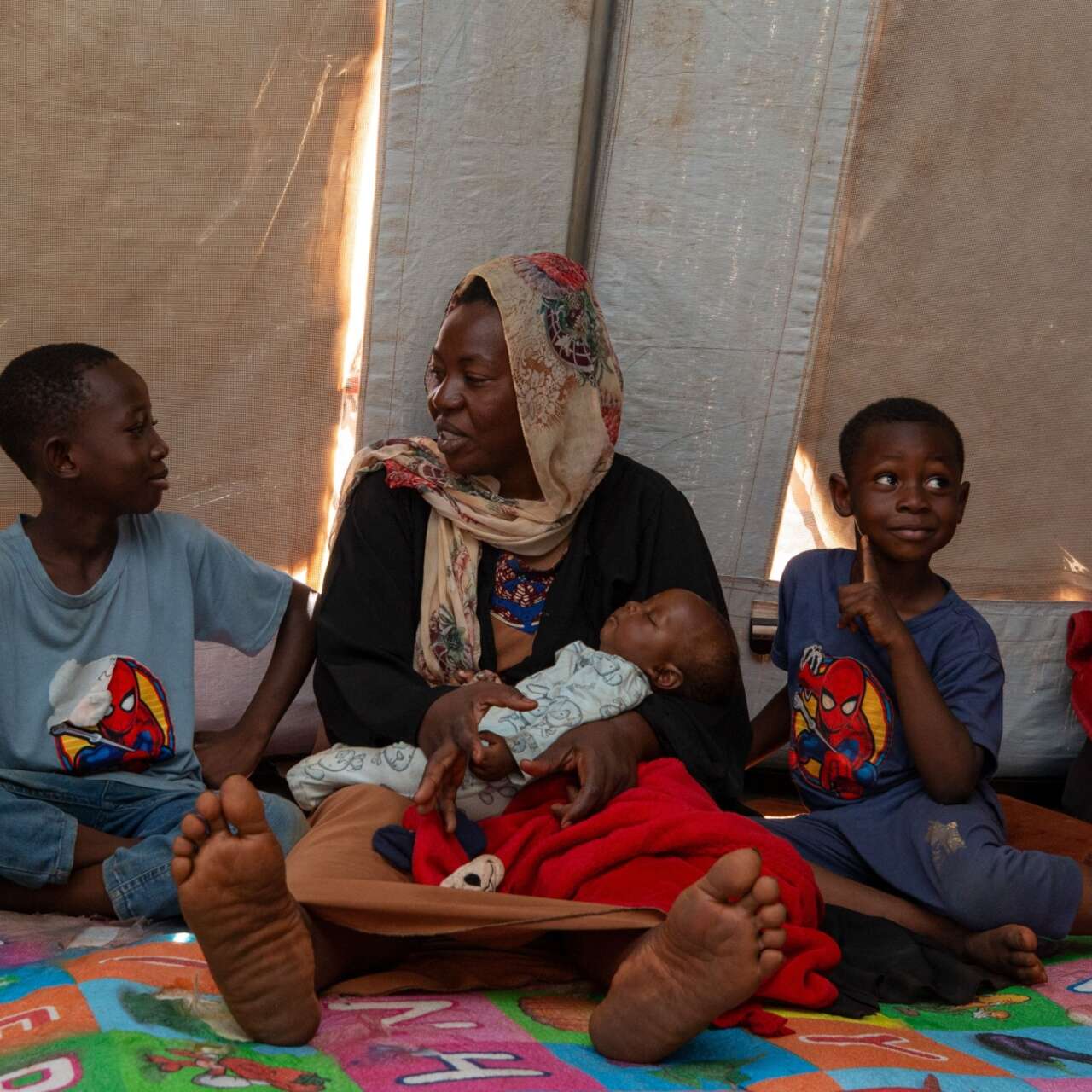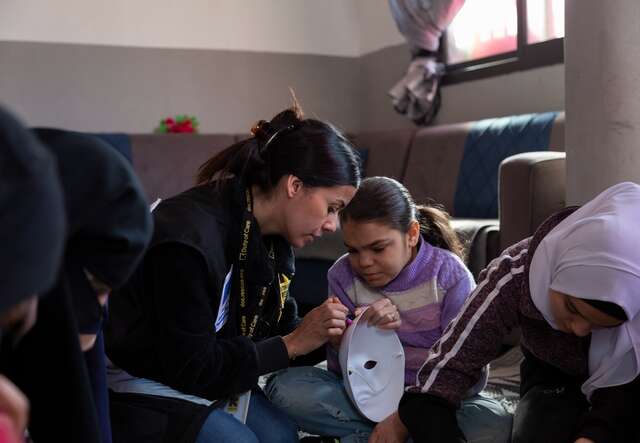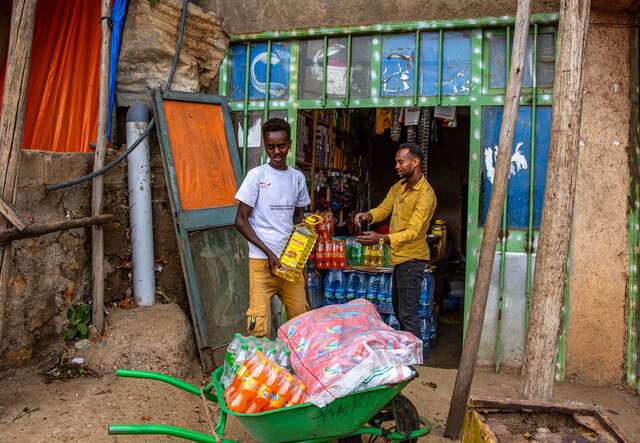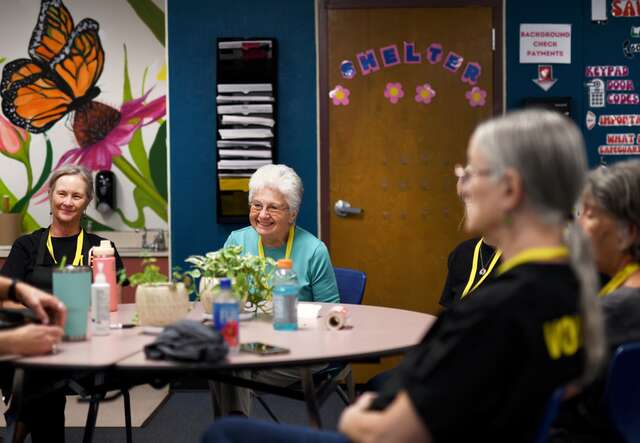
How to help refugees
This World Refugee Day we take a look at the pressing challenges that refugees face around the world—and how we can address them.

This World Refugee Day we take a look at the pressing challenges that refugees face around the world—and how we can address them.
A refugee is someone who has been forced to flee their home because of war, violence or persecution, often without warning. They often have to leave behind everything they know and love. This displacement can be incredibly traumatic and has a lasting impact on the lives of refugees. There are currently more than 35 million refugees worldwide, all of whom—especially women and girls—are at an increased risk of exploitation and peril.
An overwhelming majority of refugees are hosted in low- and middle-income countries. The three countries hosting the most refugees are Türkiye (3.6 million refugees), Iran (3.4 million refugees) and Colombia (2.5 million). These countries face immense strain in providing for and protecting these vulnerable populations. International support is needed to ensure that refugees living in such contexts receive the support needed to rebuild their lives and gain control of their futures.
In higher-income countries, like the U.S. and Germany, a broader range of services is typically available for refugees; however, numerous barriers often hinder their access to these vital resources.
The IRC is on the ground in crisis-affected countries, as well as across the U.S. and Europe, working to help refugees survive, recover and rebuild their lives. Through a range of programs and services, the IRC provides refugees with essential resources such as shelter, education, livelihood opportunities, and psychosocial support. Additionally, the IRC advocates for policies that protect refugee rights and ensure their access to vital resources.
People who have escaped danger and found refuge in comparatively safe countries face a number of barriers as they seek to integrate into new communities and gain control of their futures. Some of the challenges include language barriers, discrimination and xenophobia, lack of access to education and employment opportunities, and trauma from their experiences. Many refugees also struggle with limited access to healthcare and essential services.
Refugees often face legal challenges in navigating complex asylum systems and obtaining proper documentation. This can leave them vulnerable to exploitation and abuse by unscrupulous employers or landlords. Many refugee children are unable to attend school due to a lack of resources or government policies that restrict their access to education.
It is crucial that organisations like the IRC continue to provide support and advocacy for refugees as they navigate these obstacles and rebuild their lives.
Refugees escape war, persecution, and political turmoil, arriving in new communities burdened with significant psychosocial needs. Unfortunately, host countries with limited resources typically lack robust mental health care infrastructure to support these vulnerable populations.
In low-income countries, there is only one mental health worker for every 100,000 people. In stark contrast, high-income countries have more than 60 mental health workers per 100,000 people.
We recognize the importance of helping refugees and people in crisis overcome barriers to treating mental health. The IRC provides safe spaces, psychosocial support, counselling, primary health care and other services to ensure that refugees can receive care and manage treatment for themselves and their families, from the earliest stages of a mental health crisis through recovery.
In 2022, IRC teams provided more than 120,000 mental health consultations, serving over 70,000 clients at the primary healthcare level and almost 320,000 individuals through community activities.
Meet Ameera: a Syrian refugee finding confidence through safe spaces.

Refugees are forced to abandon their careers, businesses and possessions as they seek safety and refuge. When international support falls short of meeting the needs of refugees, they often have to make nearly impossible choices for themselves and their families. This can include skipping medication and meals or sending children to work instead of school. Refugees, and other people in need of international protection are at an exceptional risk of exploitation.
However, refugees can create shared prosperity when they are welcomed into new communities. They contribute to local economies by revitalising cities and rural communities, filling vacant housing, supporting local businesses, bringing diverse skills, creating jobs and boosting demand for goods and services. Despite this potential, economic barriers, discrimination, and a lack of inclusive services can limit the contributions of newcomers—to the detriment of both refugees and host communities.
World leaders must ensure that all refugees can make ends meet. One way to do so is through the distribution of cash assistance.
Providing cash directly to refugees is a dignified and effective form of humanitarian aid that allows families to meet their immediate needs in the ways they see best fit. Cash assistance empowers recipients, fuels the local economy and is cost effective.
In 2022, the IRC distributed over $80 million worth of cash and voucher assistance to people in more than 30 countries. Each IRC cash distribution program is customised to fit the specific needs of those receiving aid. We also work with partners around the world to deliver job skill training, seed grants and address barriers to employment—all with a focus on empowering women.
Learn more about the IRC’s economic wellbeing programs.

Integrating into a new community can be difficult for anyone. Refugees face a number of barriers to integration, including language barriers, discrimination, legal and bureaucratic obstacles, housing challenges and a lack of social networks.
It is critical that we stand together to welcome refugees and advocate for policies that provide safety to those in need.
When refugees arrive, the IRC welcomes them and connects them to housing, where we provide donations of essential items, including food, clothes, kitchen utensils and hygiene items. We offer cultural orientation, job training classes and language courses while helping newcomers find employment and apply for benefits. We also help enrol children in school, provide immigrant legal assistance and support them in accessing health care.
Through Resettlement, Asylum and Integration (RAI) programs in Europe and the U.S. we have delivered the following services in 2023:
Learn more in our 2023 annual report.
Integrating into a new community can be challenging for everyone. These challenges are amplified for refugees who have fled violence, war or persecution. A welcoming community is integral in helping refugees integrate, rebuild their lives and take control of their futures.
The IRC has partnered with the U.S. Government and nonprofit agencies as part of the Welcome Corps—a program that allows ordinary Americans to sponsor refugees and their resettlement in the United States. Welcome Corps sponsors step in and help refugees find housing and employment, learn English and integrate into their new communities.
Learn how you can make a difference by sponsoring refugees.

Safe housing is the essential first step for refugee families integrating into their new communities across the U.S. Renting to refugees provides the stable foundation needed as they rebuild their lives and create a sense of place. Join the growing network of landlords who have made a difference in the lives of refugees.
Here’s how you can provide housing to refugees.
If you want to directly impact the lives of refugees, consider volunteering your time and skills. The IRC has 29 RAI offices across the United States that support newly arrived refugees by providing immediate aid, including food, housing and medical attention. From tutoring English to assisting with job training workshops, there is something for everyone to get involved with. You can make a lasting impact by sharing your knowledge and experiences with refugees as they navigate their new lives in the United States.
Every resettlement office acts as a comprehensive and cost-free hub catering to refugees' requirements during their crucial initial months in the United States. Through a network of staff members and volunteers, the IRC helps refugees learn about life and customs in America, secure jobs, learn English, and become citizens. We provide most of the basic things they need to restart their lives here and we help them overcome cultural barriers so that their adjustment is as easy as possible.

Follow the IRC’s social media accounts to stay informed about crises worldwide and what you can do to help.
Learn more on our Instagram, Twitter (X) and LinkedIn.
The IRC is on the ground in 49 countries around the world, including the Democratic Republic of Congo, the occupied Palestinian territories, Sudan and Ukraine, working to support refugees and other crisis-affected families.